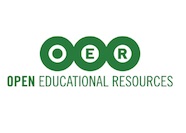Supporting Access to Open Online Courses for Learners of Developing Countries
November 28, 2015
This post is filed under: Daily News, Higher Education, Open Access, Research.
Tagged as: Instructional Systems

This paper examines how access to, and use of, open educational resources (OER) content may be enhanced for nonnative learners in developing countries from a learner perspective. Using analysis of the open education concept, factors that affect access to OER content, and universal standards for delivering multimedia learning, the author demonstrates that the open concept, access, and participation in OER content follow a three-level relationship. This relationship is affected by technology, economic, and more importantly, social factors, all of which play dual and opposite roles. The open concept forms the foundation of the three-level relationship, while access maintains a central role from which participation, including use, repurposing, and redistribution of OER depend. The submission is that the relationship among openness, access, and participation should be a major consideration for producers and providers of OER content who seek to support access for nonnative learners, particularly those in developing countries.
 This paper examines how access to, and use of, open educational resources (OER) content may be enhanced for nonnative learners in developing countries from a learner perspective. Using analysis of the open education concept, factors that affect access to OER content, and universal standards for delivering multimedia learning, the author demonstrates that the open concept, access, and participation in OER content follow a three-level relationship. This relationship is affected by technology, economic, and more importantly, social factors, all of which play dual and opposite roles. The open concept forms the foundation of the three-level relationship, while access maintains a central role from which participation, including use, repurposing, and redistribution of OER depend. The submission is that the relationship among openness, access, and participation should be a major consideration for producers and providers of OER content who seek to support access for nonnative learners, particularly those in developing countries.
This paper examines how access to, and use of, open educational resources (OER) content may be enhanced for nonnative learners in developing countries from a learner perspective. Using analysis of the open education concept, factors that affect access to OER content, and universal standards for delivering multimedia learning, the author demonstrates that the open concept, access, and participation in OER content follow a three-level relationship. This relationship is affected by technology, economic, and more importantly, social factors, all of which play dual and opposite roles. The open concept forms the foundation of the three-level relationship, while access maintains a central role from which participation, including use, repurposing, and redistribution of OER depend. The submission is that the relationship among openness, access, and participation should be a major consideration for producers and providers of OER content who seek to support access for nonnative learners, particularly those in developing countries.






